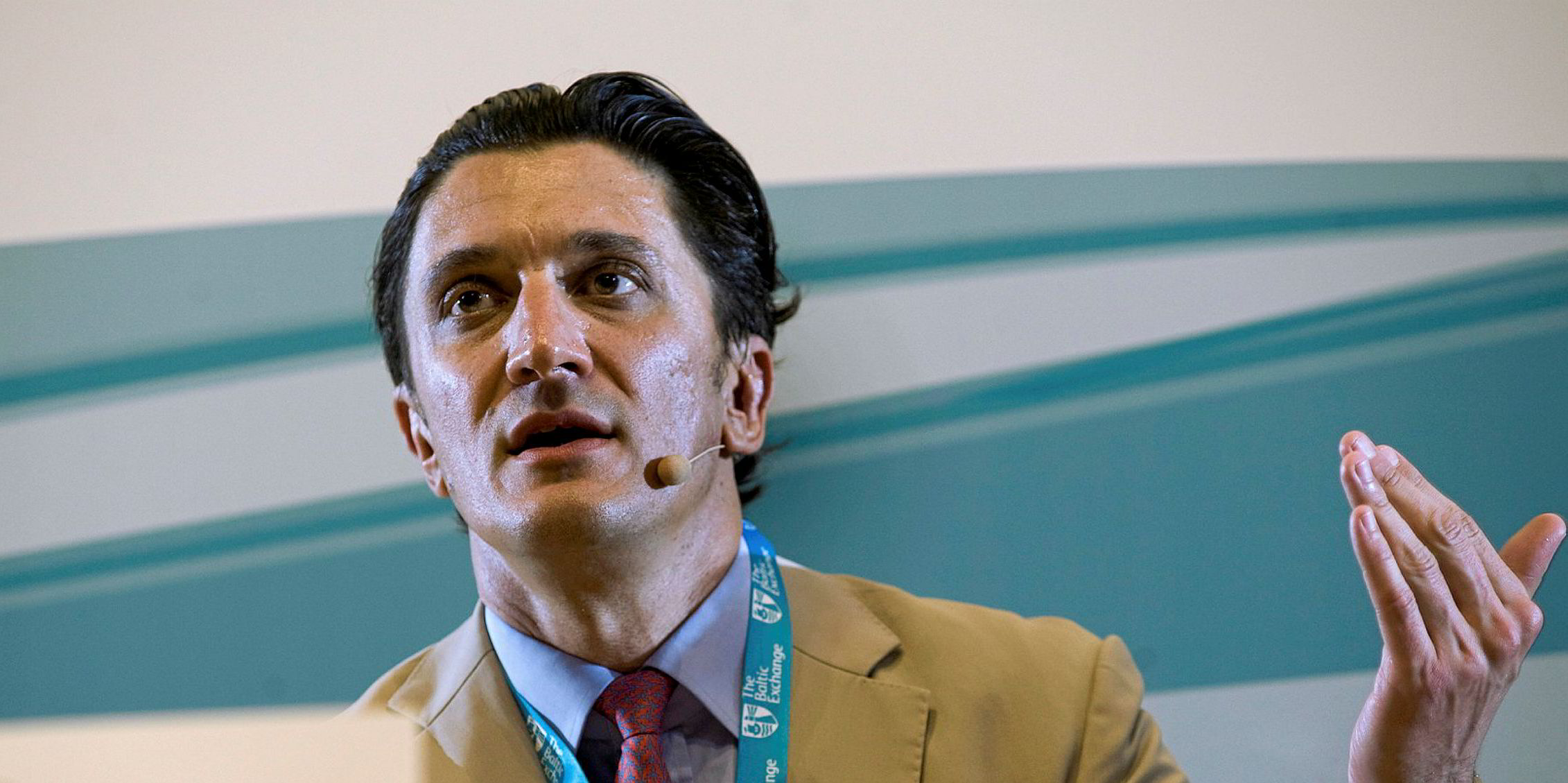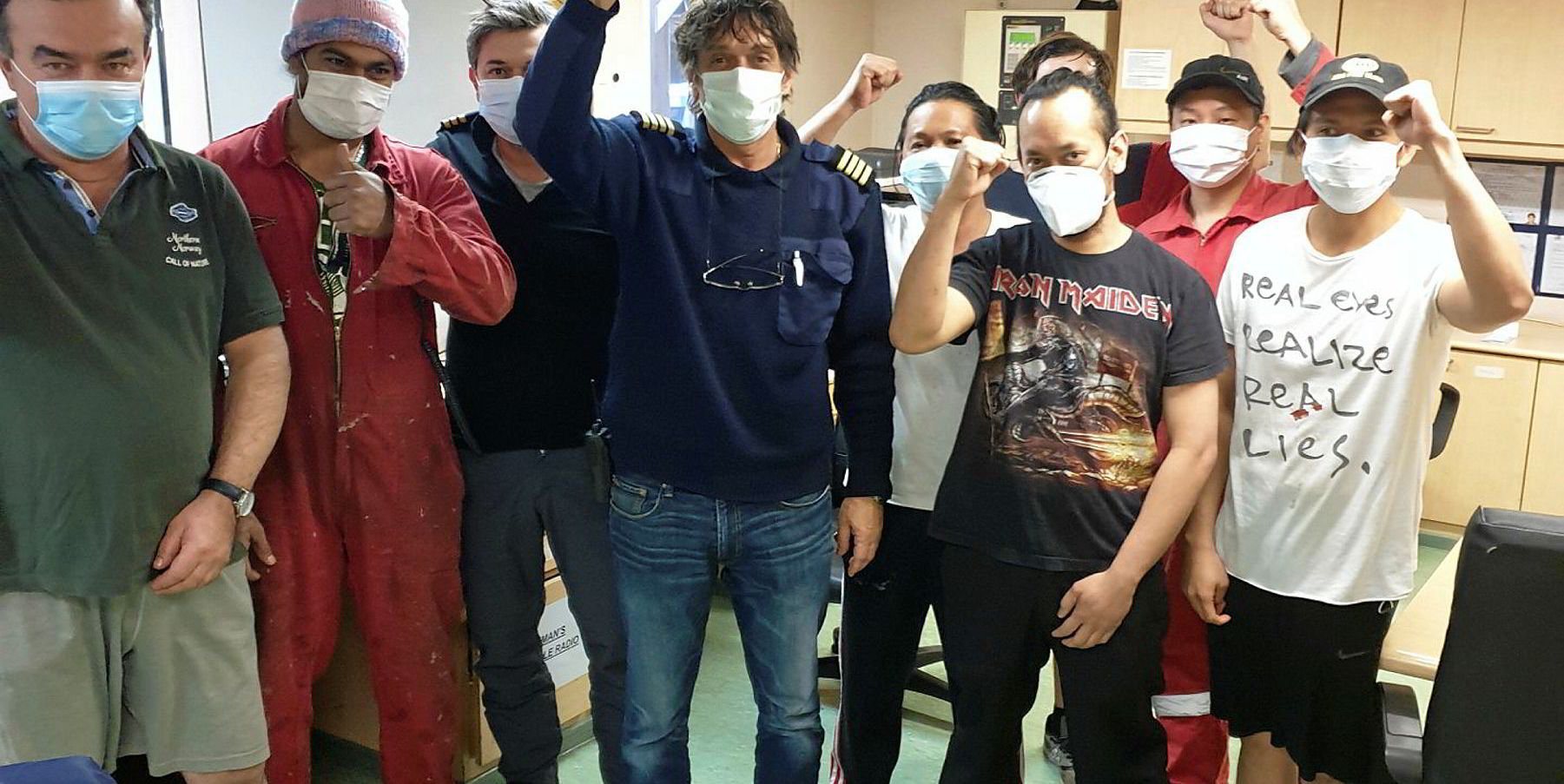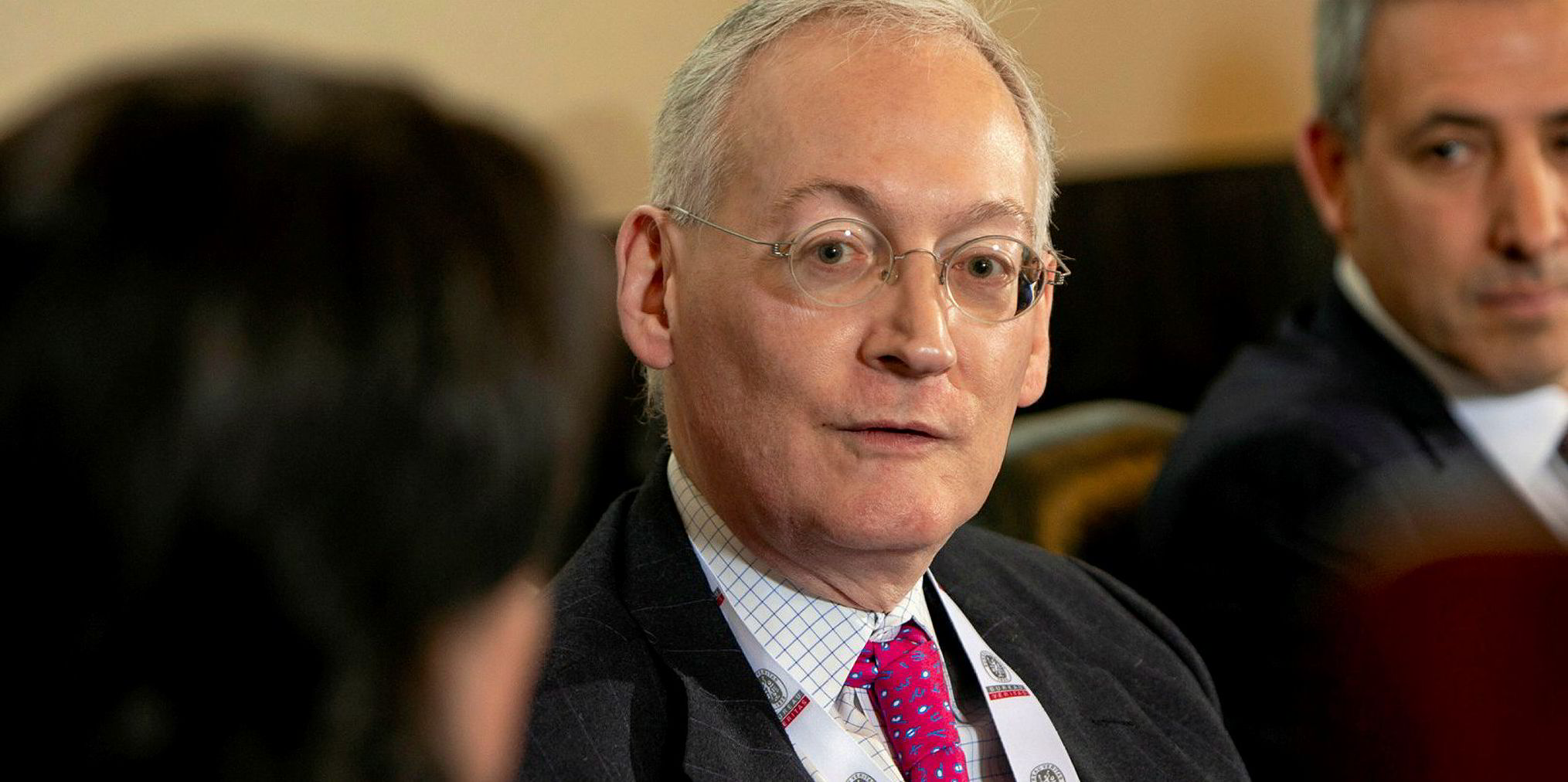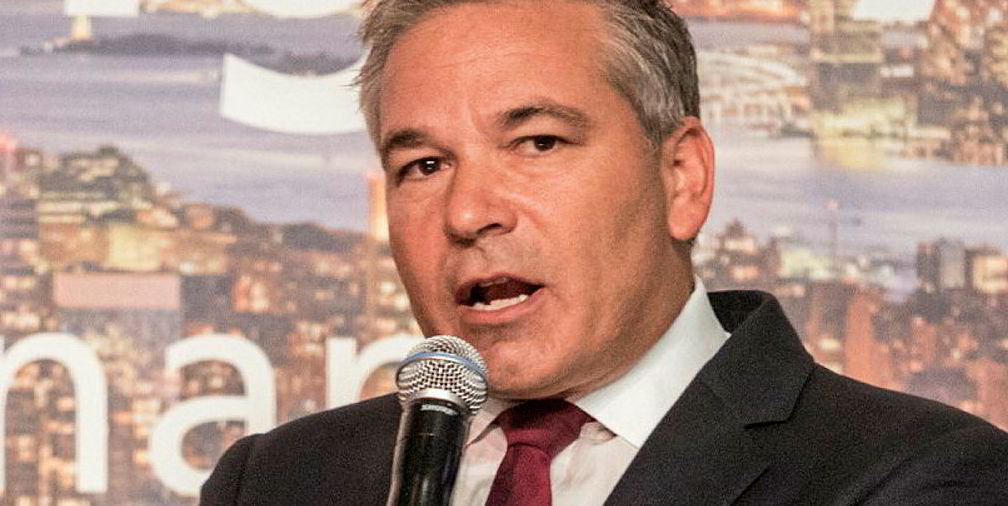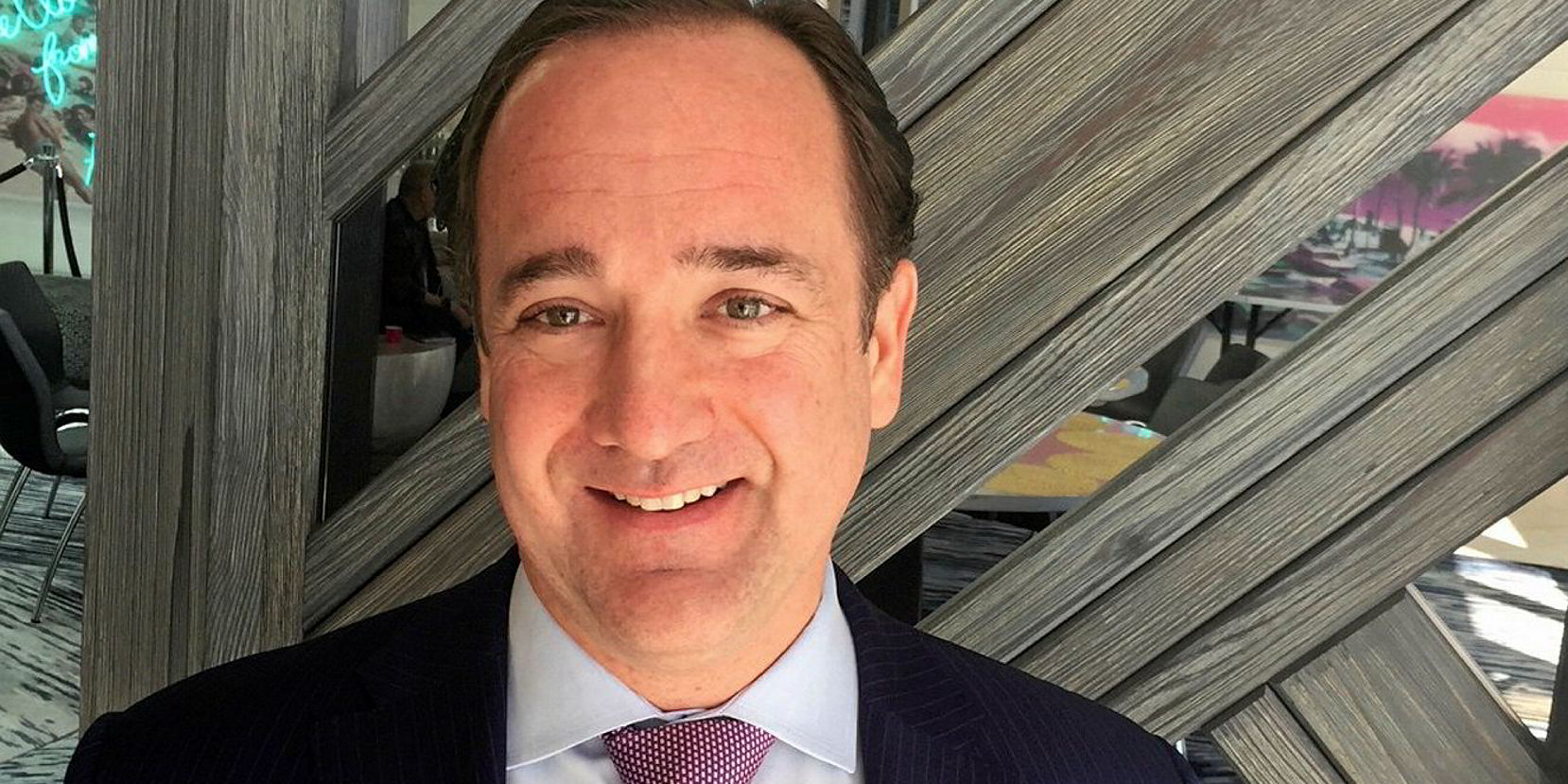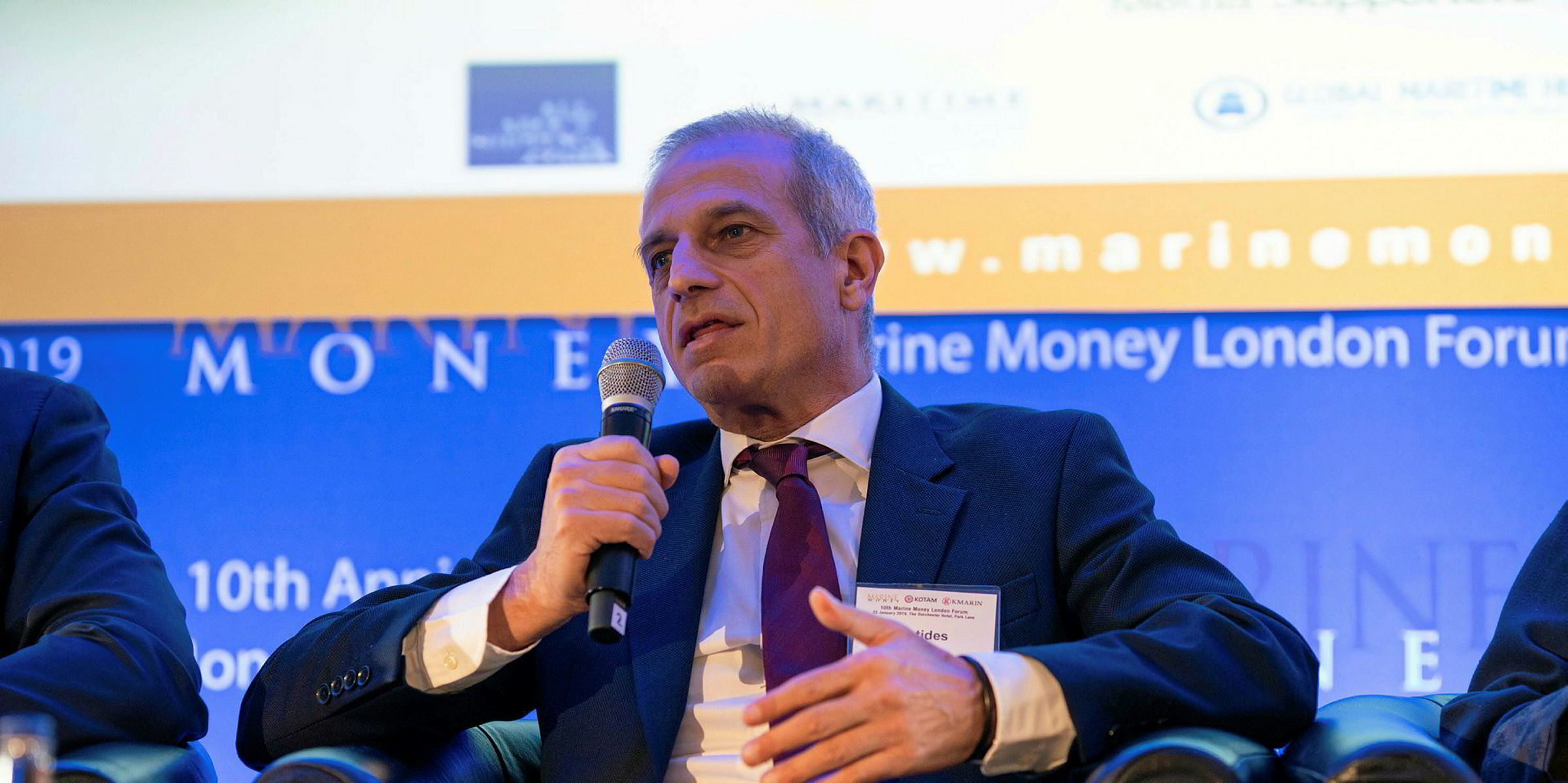GoodBulk has booked a net loss for a second consecutive quarter and has drawn down from a new $200m credit facility to refinance almost all of its existing loans.
The Monaco-based bulker owner, which is quoted on Oslo's over-the-counter market, posted a net loss of $5.8m, or $0.19 per share.
For the same period last year, the company recorded a $228,000 net profit, equivalent to $0.01 per share.
The second-quarter loss this year was mainly due to a weak market and a $10.1m depreciation charge.
Despite this non-cash item, GoodBulk's Ebitda was positive at $7.2m during the period.
The quarter's results also recognised the $2.1m net profit GoodBulk made when it sold the 171,000-dwt Aquajoy (renamed Alam Cetus, built 2003).
The capesize fetched $10.8m from China’s Seacon Shipping and was delivered on 5 May.
Weak markets forced GoodBulk to continue the suspension of its quarterly dividend.
Chairman and chief executive John Michael Radziwill said GoodBulk aims to resume returning cash to shareholders as soon as possible, through dividends or perhaps share buy-backs.
Last year, the firm paid out about $100m to shareholders.
Underperforming the index
Average earnings for GoodBulk's 23 capesizes were $1,020 below what the Baltic Capesize Index averaged during the second quarter.
The fleet earned an average gross time-charter equivalent rate of $8,912 per vessel per day during the three months.
Radziwill said the underperformance was due to the lag caused by fixing vessels during a rising spot market, where employed ships are unable to take advantage of rising rates until they return to the market, which can be about 30 days.
Fifteen of GoodBulk's capesizes traded in the spot market during the quarter in the Capesize Chartering pool. Others are employed on period contracts.
Radziwill said that the same lag effect will mean that GoodBulk should return to outperforming the index again in its next quarterly results.
The company's sole panamax traded in the spot market earning $7,314 per day during the second quarter.
This is just under the Baltic Panamax Index's time-charter average $7,453 per day for the quarter.
Refinancing deal
GoodBulk is undergoing refinancing, after securing a new $200m five-year loan from a consortium of its existing lenders in June, as TradeWinds reported.
The company drew down the facility on 10 July and has refinanced five of its six previous loans.
GoodBulk’s 23 capesizes and one panamax, all built between 2005 and 2013, are externally managed by C Transport Maritime, which is wholly owned by Brentwood Shipping, which is in turn owned by the Radziwill family
The cash has been used to repay existing facilities with ABN Amro, Credit Suisse, ING Bank and Danish Ship Finance, which financed two capesizes, the 178,900-dwt Aquasurfer (built 2013) and Aquamarie (built 2012).
In total, $196.1m of the vessels' finance was outstanding as of June 30.
The new five-year loan bears interest at Libor plus 2.35% — about 0.15% below the present spread — and will not begin amortising until January, which will reduce the company's future costs.
GoodBulk made early terminations of interest rate swap (IRS) agreements with Dutch bank ABN Amro — one of the lenders that provided the new facility on 9 July — and repaid the market value of the swaps at that time, which was $2.4m.
The company has also agreed with two of its other lenders, Credit Suisse and ING Bank, to blend and extend existing IRS agreements with a combined notional amount of $113.2m, in order to hedge the corresponding portions.
Earnings outlook
GoodBulk has fixed one of its capesizes on a medium-term period charter.
The 179,400-dwt Aquamaka (built 2009) was contracted by an undisclosed charterer for 17 to 20 months at $16,500 per day.
Clarksons estimates one-year period rates of $16,750 per day for 180,000-dwt bulkers, as of 31 July.
GoodBulk has fixed about 55% of its capesize days at around $16,236 per vessel per day for the third quarter.
The shipowner said this would allow "for ample room to capture expected strong spot market rates in August and September".
The refinancing has allowed GoodBulk to reduced its all-in cash break-even for the second half of 2020 to $6,922 per day, which will be lowered further when combined with revenue from GoodBulk's contract backlog for the period.
